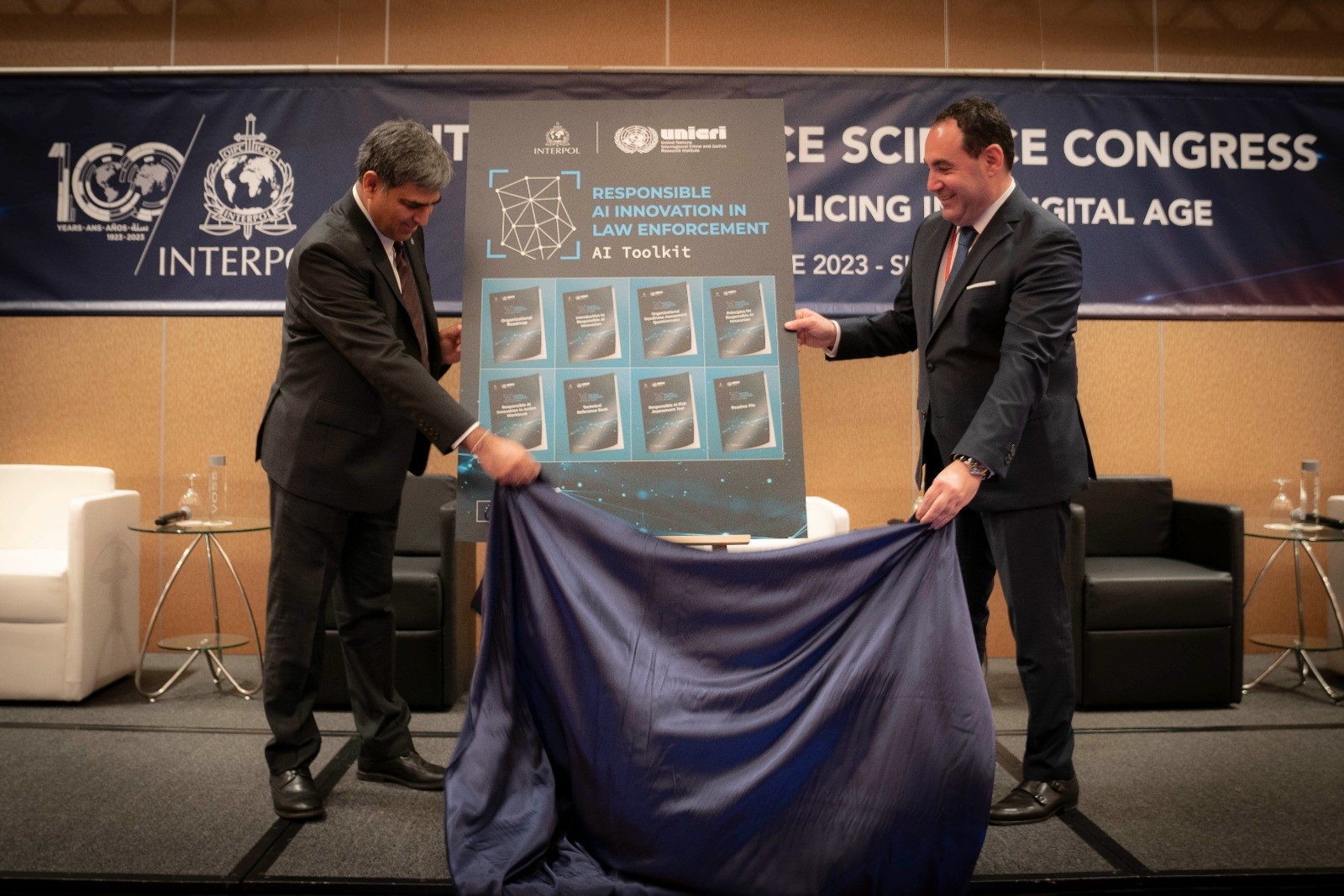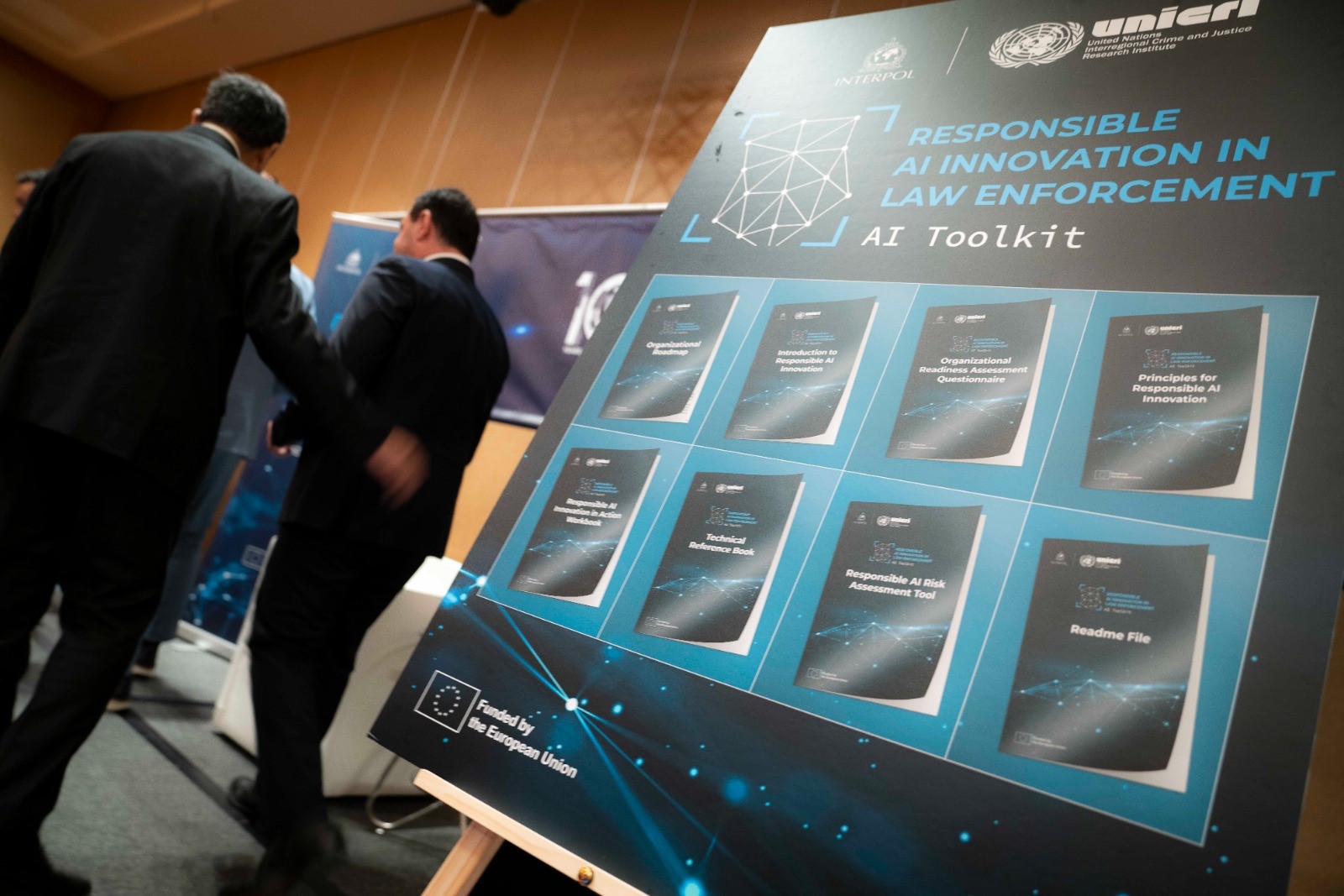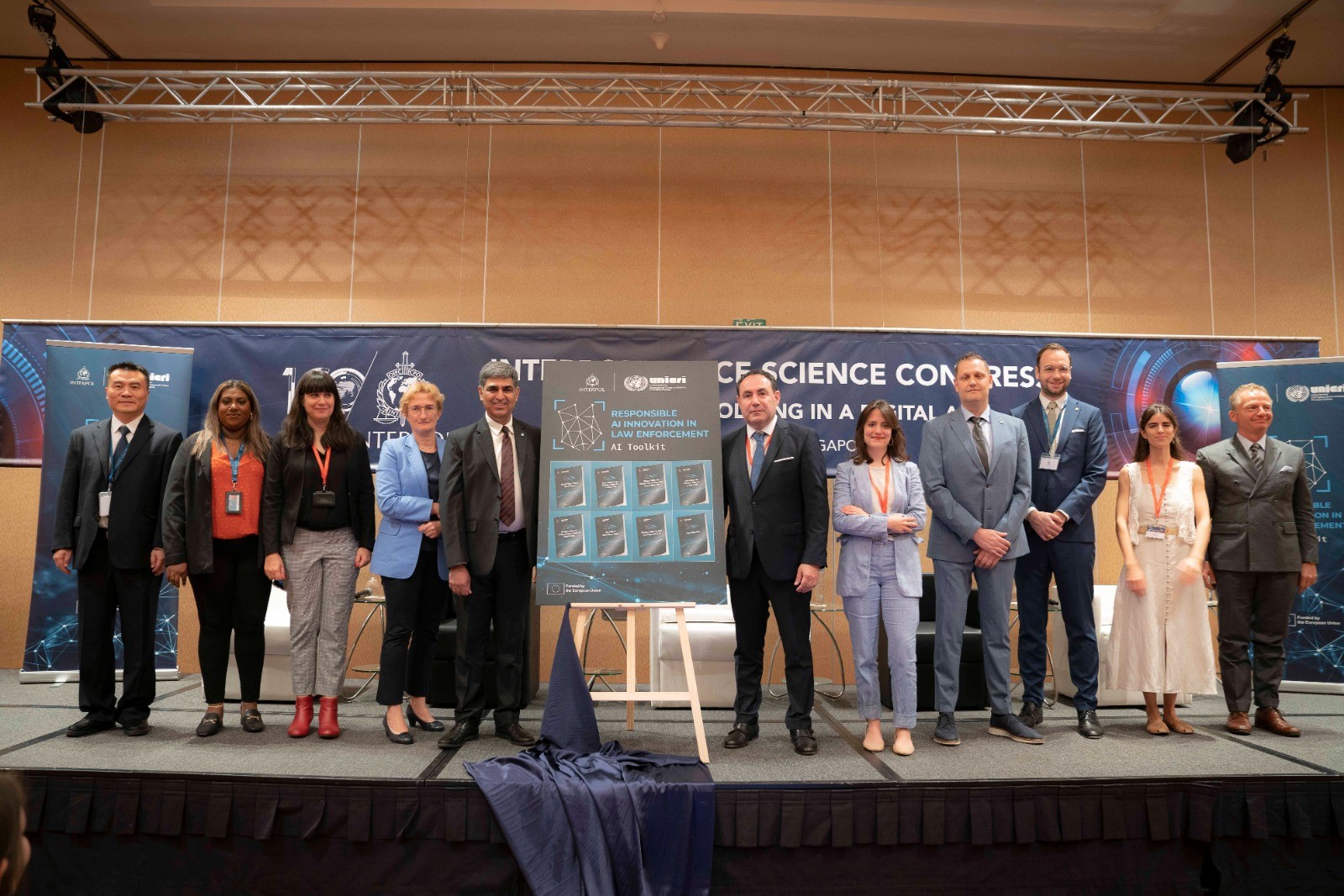SINGAPORE – As Artificial Intelligence (AI) continues to take the world by storm – revolutionizing how large sections of society function – it is increasingly clear that those seeking to make use of its potential must do so within a set framework. The use of this technology in law enforcement is no exception.
With representatives from the global law enforcement community gathered for INTERPOL’s Police Science Congress in Singapore, INTERPOL and the United Nations Interregional Crime and Justice Research Institute (UNICRI) today unveiled their Toolkit for Responsible AI Innovation in Law Enforcement – a practical guide for law enforcement agencies on developing and deploying AI responsibly, while respecting human rights and ethics principles.
Jointly developed by UNICRI’s Centre for AI and Robotics and INTERPOL’s Responsible AI Lab, with financial support from the European Union, the AI Toolkit is the response to a clear call by the law enforcement community for guidance in utilizing AI.
Indeed, law enforcement agencies are already making extensive use of AI systems, or systems with AI components, but many of these tools may not have been specifically produced for a law enforcement context.
Reflecting on this, INTERPOL Secretary General Jürgen Stock said: “AI is undeniably a game changer for criminals and law enforcement alike. However, it is imperative that we make the shift to the new technological era in a trustworthy, lawful and responsible manner, providing a clear, pragmatic, and most of all useful way.”
Speaking of the partnership between UNICRI and INTERPOL that led to this innovative instrument, the Director of UNICRI, Antonia De Meo highlighted that “Together we have produced an invaluable blueprint to guide the global law enforcement community to leverage the promise of AI in a human rights compliant and ethical manner. This crucial resource is anchored in action-oriented research that enables us to harness technology within the confines of rule of law and respect for human rights.”
The AI Toolkit, which is comprised of seven distinct resources, underpinned by a comprehensive user guide, provides guidance for law enforcement executives and officers to navigate responsible AI innovation including:
- The technical foundations of AI
- Guiding principles for responsible use, aligned with policing principles
- Organizational assessments on readiness and risk
Envisaged as an evolving instrument, the AI Toolkit will be updated and revised regularly to ensure that law enforcement can keep pace with the rapid developments in this field and the associated legal and ethical challenges. This will be complemented with capacity building initiatives and support to countries looking to draft national guidelines or strategies.
Ultimately, national authorities retain full autonomy over their AI journey. The AI Toolkit will help law enforcement policymakers navigate the debates and discussions that form an integral part of this process.
The Toolkit for Responsible AI Innovation in Law Enforcement can be downloaded in the related documents below.










